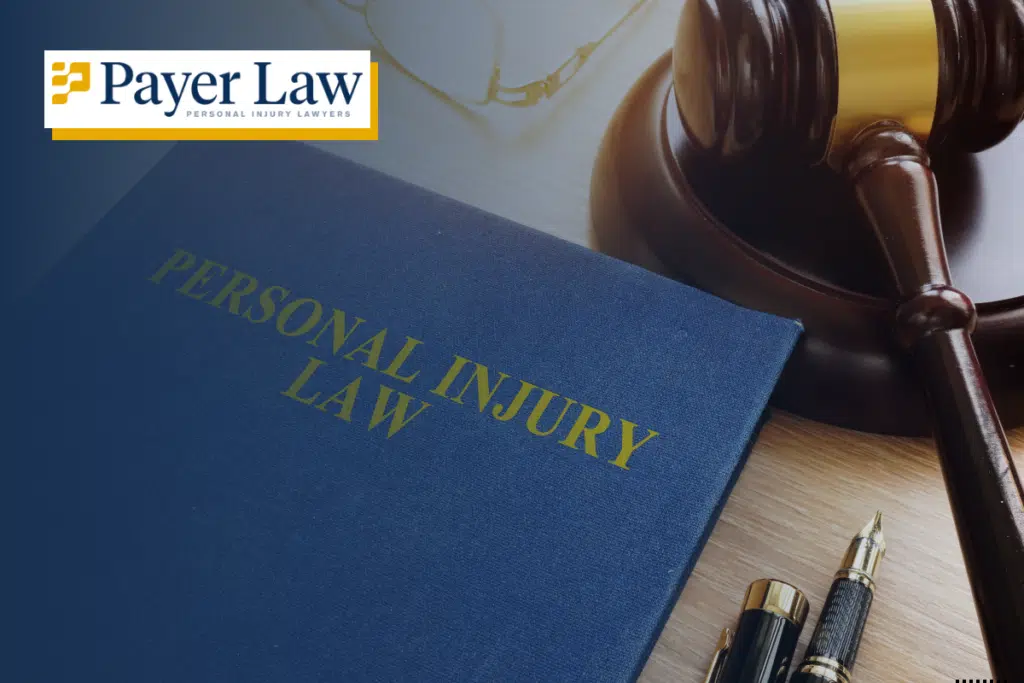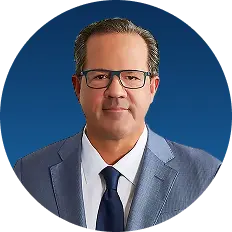
Reviewed by: James D. Payer
Personal injury laws cover a variety of cases and injuries. Personal injury cases in Florida include injuries caused by car accidents, medical malpractice, wrongful death, defective products, slip and fall accidents, and many other situations. At Payer Law Personal Injury Lawyers, we’re equipped to handle all types of personal injury claims.
We understand that you probably have many questions about personal injury claims, including the compensation you can receive for your injuries and damages. Below are the answers to frequently asked questions about personal injury from our personal injury attorneys.
Table of Contents
- How Do I Know if I Have a Claim for Personal Injury?
- What Types of Compensation Are Paid for Personal Injury Cases in Florida?
- What Is the Burden of Proof in a Florida Personal Injury Case?
- Can I Recover Compensation for an Accident or Injury if I’m Partially at Fault?
- What Is the Deadline for Filing Personal Injury Lawsuits in Orlando, FL?
- How Can an Orlando Personal Injury Lawyer Help Me With My Case?
- What Does It Cost To Hire an Orlando Personal Injury Lawyer?
- Schedule a Free Consultation With Our Orlando Personal Injury Lawyers
How Do I Know if I Have a Claim for Personal Injury?
The best way to know if you have a case is to take advantage of a free consultation with an Orlando personal injury attorney. Our attorneys carefully examine all factors in your case to advise you of all legal options available to you. We identify all parties who could be responsible for your injuries to maximize your chance of receiving full compensation for all damages.
What Types of Compensation Are Paid for Personal Injury Cases in Florida?
Most injured victims are entitled to compensatory damages. These damages compensate you for the financial losses, pain, and suffering you experience because of another party’s negligent acts or intentional torts.
Examples of economic damages and non-economic damages in an Orlando personal injury case include:
- Out-of-pocket expenses
- Physical pain
- Long-term skilled care
- Loss of enjoyment of life
- Medical bills and expenses
- Emotional distress and mental anguish
- Property damage
- Disfigurement, impairment, scarring, and disabling conditions
- Lost wages
- Diminished quality of life
- Personal care and household services
- A decrease in earning capacity
A victim may also be entitled to punitive damages. Florida law only allows punitive damages when a victim can prove the at-fault party is guilty of intentional conduct or gross negligence.
What Is the Burden of Proof in a Florida Personal Injury Case?
The accident victim has the burden of proving all required legal elements by a preponderance of the evidence. Based on the evidence you present in court, the jury must believe there is a greater than 50% chance that the other party is responsible for causing your injury. Otherwise, the jury could find that the party is not responsible for your injuries.
In general negligence claims, you must prove:
- The person or company owed you a duty of care
- They breached their duty of care through their acts or omissions
- The breach of duty was the proximate and direct cause of your injuries
- You suffered harm and damages because of the breach of duty
Other causes of action might be used to prove liability for a personal injury claim, including strict liability, negligence per se, intentional torts, and vicarious liability. Our legal team develops a strategy based on the facts of your case that gives you the best chance of recovering fair compensation.
Can I Recover Compensation for an Accident or Injury if I’m Partially at Fault?
Florida operates under a modified comparative fault law for personal injury claims. You can recover compensation for your damages if you are partially to blame for the cause of your injuries. However, your compensation for damages is reduced by your degree of fault.
Suppose you are 25% to blame for causing a motorcycle accident. In that case, you could only receive up to 75% of the compensation the jury awards for your damages. If you are 51% or more to blame, you would be barred from recovering damages under state law.
An experienced personal injury lawyer can protect you against allegations of shared responsibility.
What Is the Deadline for Filing Personal Injury Lawsuits in Orlando, FL?
A statute of limitations is a deadline for filing a claim or lawsuit. Judges can dismiss your case if you do not file it before the statute of limitations expires.
Florida’s statute of limitations for most negligence causes of action is two years from the injury date. For some types of cases, such as assaults, the deadline is four years instead. Most medical malpractice and wrongful death claims also have a two-year statute of limitations.
Exceptions to the statute of limitations can sometimes change the filing deadline. Therefore, seeking legal counsel from one of our Orlando personal injury lawyers as soon as possible is best to avoid losing your right to pursue a court case.
How Can an Orlando Personal Injury Lawyer Help Me With My Case?
Personal injury cases can be complicated. They may involve complex laws, multiple parties, and disputes regarding fault. Insurance companies cannot be trusted to offer the full value of your damages as a settlement offer.
Furthermore, insurance companies and large corporations have endless resources to fight your claim. Hiring a personal injury attorney in Orlando evens the playing field. A law firm has the resources to fight for your rights.
At Payer Law Personal Injury Lawyers, we handle all aspects of your personal injury case, including but not limited to:
- Completing a thorough claim investigation to determine the cause of your injuries
- Identify all parties who could be liable for your damages
- Analyze the evidence and circumstances in your case to determine all potential legal options to recover compensation
- Diligently document your damages to calculate the correct value for your personal injury claim
- Work with top-rated expert witnesses when necessary, including accident reconstructionists, financial professionals, engineers, trucking industry experts, and medical specialists
- Keep you updated on the progress of your case and consult you on decisions regarding settlement or other matters
- Calculate and monitor deadlines for filing claims and lawsuits
- Aggressively negotiating for top personal injury settlements
- File a lawsuit and aggressively advocate for you in court, if needed
Having a skilled and experienced legal team on your side gives you a better chance of winning your case. It also gives you a better chance of recovering a fair amount for your damages.
What Does It Cost To Hire an Orlando Personal Injury Lawyer?
Our lawyers take cases on a contingency fee basis. Instead of paying our attorney’s fees when you hire our law firm, we agree to take a percentage of the amount we recover for your claim as our fees.
As a result, you do not pay any money upfront to hire our personal injury lawyers. Further, we will only get paid if you get paid.
Schedule a Free Consultation With Our Orlando Personal Injury Lawyers
At Payer Law Personal Injury Lawyers, we’ll fight to obtain the maximum compensation available for your personal injury case. We have won tens of millions of dollars for our clients. With more than 50 years of combined legal experience, you can trust we thoroughly understand Florida personal injury laws.
Contact us today for a free consultation with one of our experienced Orlando personal injury attorneys, you can call us at (407) 648-1510.
Hours: Open 24 hours daily
$27.56
MILLION
VERDICT
Car crash resulting in significant brain injuries
$3.10
MILLION
VERDICT
Jury verdict in ambulance liabilty damage case
$2.25
MILLION
VERDICT
Car accident resulting in
a TBI
$2.00
MILLION
VERDICT
Breathing injuries due to
chemical exposure
$1.65
MILLION
VERDICT
Our clients son was killed by an allegedly drunk driver
$1.25
MILLION
VERDICT
Car accident resulting in lower leg amputation
$1
MILLION
VERDICT
Car accident resulting in multiple facial damages

Injured?
Contact Us Today
Client Reviews
Professional, efficient, helpful, and dedicated to their clients. Lysette West extremely attentive and responsive, answered every question or concern professionally and swiftly. She set my mind at ease during some of the most difficult times I have encountered. Even when I missed an appointment because of a natural disaster. She jumped right into the situation cleared it up and got the ball rolling again in short order. I only wish I was able to call on Payer Law for all my legal issues.
James has a heart for justice and is passionate about helping the ones in need of fair representation. Thank you for your professionalism and confidence in what’s right. Thank you for caring and being there for my mom and our family. God bless.
The staff are courteous and knowledgeable. Chris Payer treats me like family and I know he is fighting for me and my case. I highly recommend Payer Law.


